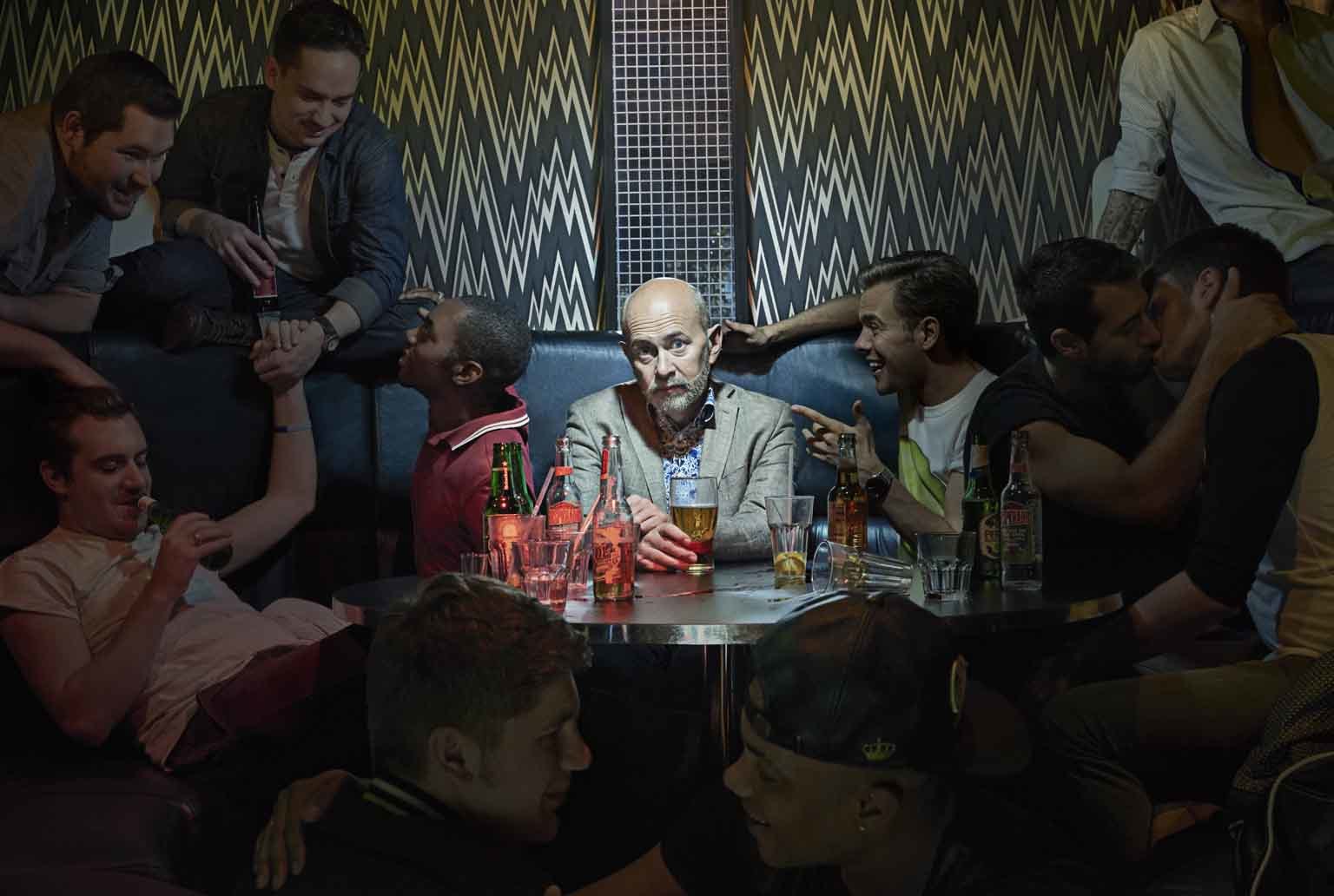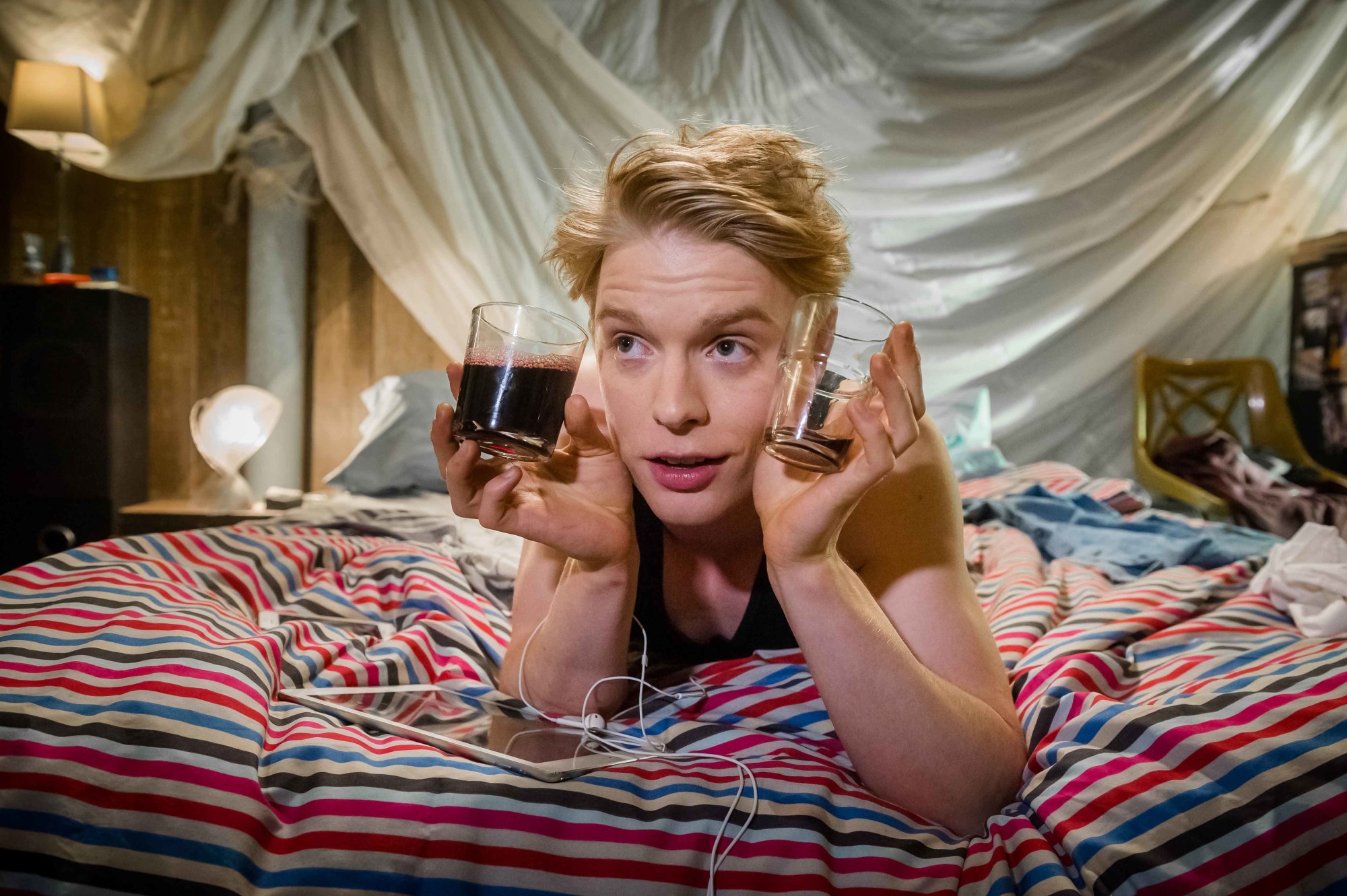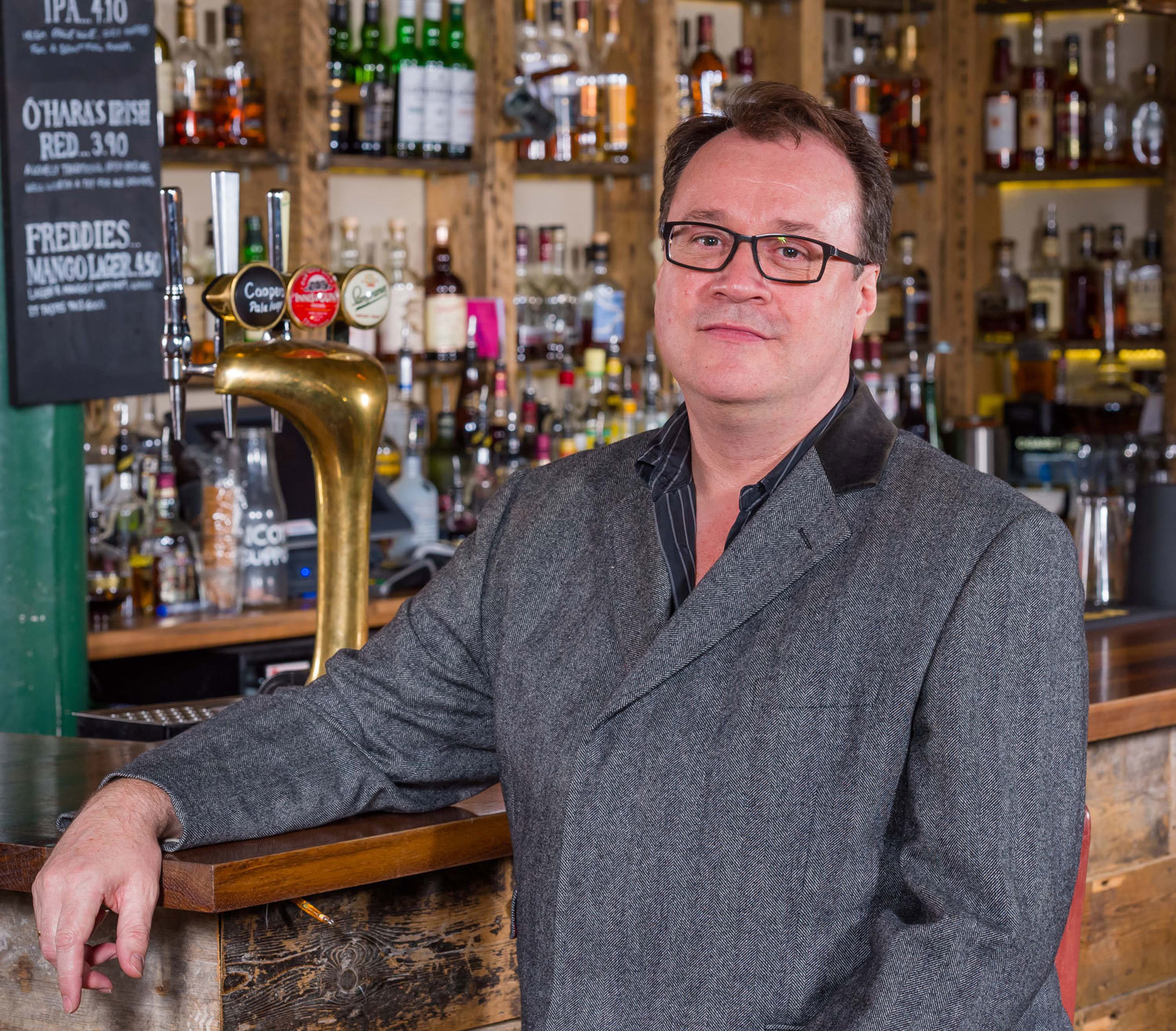When Russell T Davies’ Queer As Folk was first aired on TV in 1999, the UK wasn’t the most accepting of countries for queer lifestyles. The show helped redefine the media’s perception of gay men. While social attitudes towards gay people were changing, the Government was, as ever, playing catch-up. It had yet to equalise the age of consent, allow openly gay people to serve in the military or even legally recognise their relationships. In the 16 years since, a steady march towards a more equal society followed. Now Davies is back with Cucumber, Banana and Tofu, his new inter-linked series that take a sharp, honest and witty look at the lives of gay men today…
I remember Queer As Folk as a lifeline for me as a gay kid growing up in a largely homophobic neighbourhood. While it was a huge success and the audiences loved it, you got accused of pandering to stereotypes by some critics.
When you’ve been accused of pandering to stereotypes, you take a deep breath and say, ‘OK, you didn’t like it’ and be polite. But I know they are far better than stereotypes, they are frankly laser sharp representations. Gay society is always chasing for representation and that’s a really valid thing to look for, but the truth of it is nobody ever likes looking at a photograph of themselves or hearing their own voice. I could put the most accurate representation of you, on screen, right now and you wouldn’t like it, you wouldn’t like to look at yourself. And also people don’t know themselves, it’s very hard to recognise yourself, so it doesn’t matter how good what you’ve written is, or how well acted it is, people will complain. That’s just natural. It’s also inevitable because stereotypical representations do exist, you do see that happening elsewhere on TV, so an audience does have a hard time differentiating the good from the bad. But frankly, my stuff’s good, I’m proud of it, I’ve worked really hard, I’ve worked with absolute honesty, and punished myself in order to get it right.
The titles – Banana and Cucumber – are both references to the penis’ state of arousal, and when Henry sees a sexy guy there’s a cut to a cucumber. Does that represent the pervading thoughts about sex that invade all men’s every day lives, gay or straight?
Yes. Henry’s [Vincent Franklin] fellow office workers are eyeing up the women in the office in the same way. There’s that old line that men think about sex every six seconds, but I think that’s a lie. I think we think about sex every single second, and it’s a lie they told women so they can live with us in the same world.
I like how younger Dean [Fisayo Akinade] has this obsession with sex and yet at the same time has an issue with sex…
And which probably explains the obsession. I think when you see sexually confidant people – which is quite rare, but you do meet people like that – then they’re probably not as hung up on sex as others, because it’s more like a good meal for them. I think it’s the people who have problems with sex that are obsessed because it becomes a problem, and it becomes a self-perpetuating circle.
Since Queer As Folk was first on TV, the internet and hook-up apps have transformed the way men meet each other. Has sex become more of a commodity?
Certainly with hook-up apps there’s a speed to it now. You can pick up a shag in ten minutes when it used to take five hours sitting in the bar getting drunk. But nonetheless it’s the same experience. It’s also a little judgemental to say, ‘sex is a commodity, sex is too available.’ It becomes a judgment on sex as a bad thing. There’s nothing wrong with sex being more available, just as long as you behave responsibly. That’s fine, feed it. You can get a good meal any time, anywhere these days. There’s nothing wrong with sex being right at the top of the agenda like that.

Is that availability liberating us more from our traditional hang-ups?
I know probably somewhere some gay man will pipe up and say about a character like Freddie [Freddie Fox] being so promiscuous. Promiscuous is such a loaded word. As soon as you have sex with more than one person, you’re a bad person. I absolutely don’t agree with that at all. A life of hook-ups and one-night stands can be lovely. If you have problems as well, that happens in life everywhere. That’s just a picture of the world.
Has the progress in equality made it conversely harder for us to be gay men because straight society is still hung up on its fear of the idea of sex between men?
It’s a constant process, it gets better. A lot of gay fiction is based on the notion of equality and insisting that we’re equal, and defiantly saying ‘we’re here’. But we now have to look beyond that and put gay drama on screen that is no longer about representation, but simply about being a drama that asks ‘Who are we? Why are we here? What do we think about this, what do we think about that, and what do we stand for?’ Gay culture is still a brand new society, that has only recently become welcome in the West. But you just have to look at countries where things take a step backwards or look at the rise of the right wing in America and know that we should never relax and feel secure in our existence here. I think the one good thing David Cameron did was introduce gay marriage. It would be very interesting in the next election to see if he lost any votes in the Tory heartland because of that.
What about the assimilation of gay life into the straight model?
I think there’s a great danger when we all become sociologists that we talk about things theoretically and not practically, which is to say I have seen arguments that are saying ‘are we following a straight model, should we explore new, gay models?’ All of which are fascinating and I could write an essay about, but I couldn’t write a drama about them because I don’t know how true they are. I went out with the same man for 16 years and at no point did we say, ‘are we following a straight or gay model’ because I think that conversation belongs in a textbook and not in real life. That’s not how real life ever feels. My friends don’t ever sit there and think, ‘what model are we following?’ I don’t know how real that is. I think that’s where gay life is commodified and compartmentalised, when the theorists try to break it down into boxes and definitions. No one does that in real life, we’re all too busy living. Life is complicated enough without these theoretical models intruding.
What did you learn most about yourself and gay society this time?
I kind of sit exactly where I’ve always sat, which is that we’re doing very well, but we’re still full of problems. I do feel that we’re at a stage where things have been so fast and have been so good for so long, that I do feel a backlash coming. We are actually looking at a future now where in five months we could end up with a ridiculous Parliament that could be formed of such twisted coalitions that someone like UKIP might end up in a position of power, and then we are really going to see what we’re made of. I dread that future, but I actually find it quite invigorating because finally we might get up off our arses and get on the streets and start protesting about what’s going on and not just putting up with it. So, I think we’re at an age and place where we might be tested soon, and we better be ready.
Do you think that as a community we could become complacent with our freedoms, even here in the UK?
I do. I say that as someone growing up and coming out of the closet in the liberal late 70s and early 80s, then the greatest calamity in our history came along, which is the AIDs crisis, so I’m kind of used to catastrophic thinking. I’ve seen good times and the very worst of bad times.

Credits
Text Cliff Joannou
Images courtesy Channel 4
